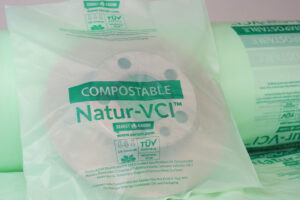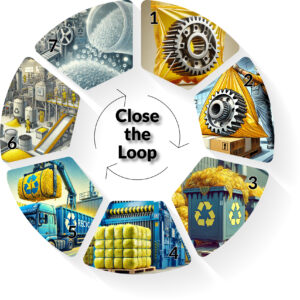 Sustainability is no longer optional; it’s a growing expectation across industries. However, this push has led some companies to exaggerate or mislead customers about how environmentally friendly their products truly are. This practice, known as greenwashing, is becoming a serious concern in the corrosion prevention industry. At NTIC/ZERUST®, we are calling out greenwashing in VCI packaging and advocating for a more science-driven, transparent approach.
Sustainability is no longer optional; it’s a growing expectation across industries. However, this push has led some companies to exaggerate or mislead customers about how environmentally friendly their products truly are. This practice, known as greenwashing, is becoming a serious concern in the corrosion prevention industry. At NTIC/ZERUST®, we are calling out greenwashing in VCI packaging and advocating for a more science-driven, transparent approach.
For example, according to the U.S. Federal Trade Commission (FTC), a product labeled “biodegradable” must fully break down into natural elements within one year under typical disposal conditions. But landfills are not built for biodegradation. They are anaerobic environments where even food waste may not break down for decades.
How Greenwashing in VCI Packaging Misuses Testing Standards
Despite this, some companies point to test methods like ASTM D5511 and ASTM D5526 to support their claims. Unfortunately, these methods do not establish biodegradability standards. They simulate ideal lab conditions and do not reflect real-world landfill performance.
Moreover, ASTM D5526 was officially withdrawn in 2025. ASTM cited its outdated assumptions and the frequent misuse of it to support unreliable claims. Therefore, using this test as proof of biodegradability contributes directly to greenwashing and undermines industry credibility.
What a Valid Claim Looks Like—No Greenwashing Here

In contrast, at NTIC, we do things differently. We developed ZERUST® Natur-VCI® film to meet global compostability standards. It complies with ASTM D6400 and EN 13432 and is certified 100% compostable by TÜV Austria. In addition, Natur-VCI® also passes the NACE TM0208 standard for corrosion protection.
Unlike conventional polyethylene films, Natur-VCI® safely breaks down in industrial composting facilities. It leaves no toxic residue or microplastics behind. As a result, this makes it a scientifically validated and environmentally responsible solution that avoids any risk of greenwashing in VCI packaging.
Limitations of Compostable Packaging

While compostable films are promising, they aren’t a one-size-fits-all solution. These materials often cost more and have a shorter shelf life than standard polyethylene. Additionally, U.S. industrial composting facilities mostly accept food-related waste. If any part of the packaging, such as tape or oil, is not compostable, the entire item may end up in a landfill, making even well-intentioned claims vulnerable to greenwashing.
To overcome this, NTIC also created the ZeCycle recycling program. It reintegrates used ZERUST® films into new ZERUST® ICT®510-PCR30 Post-Consumer Recycled (PCR) VCI Films. Thus, this helps manufacturers close the loop without falling into the trap of greenwashing in VCI packaging.
The Bottom Line on Greenwashing
Ultimately, greenwashing causes real harm. It confuses customers, damages trust, and slows meaningful environmental progress. At NTIC, we base our sustainability efforts on science, not marketing tactics.
Click here to read our full technical response and learn how ZERUST® is setting a higher standard by fighting greenwashing in VCI packaging with facts, not fiction.
